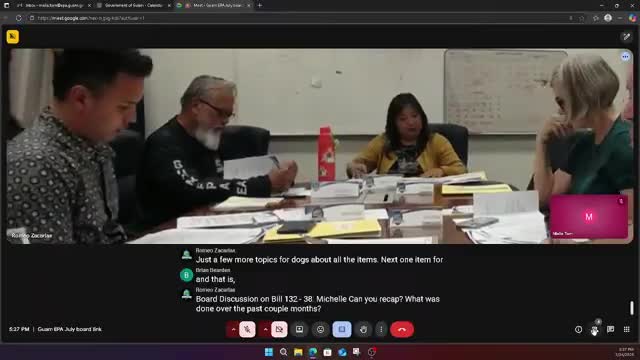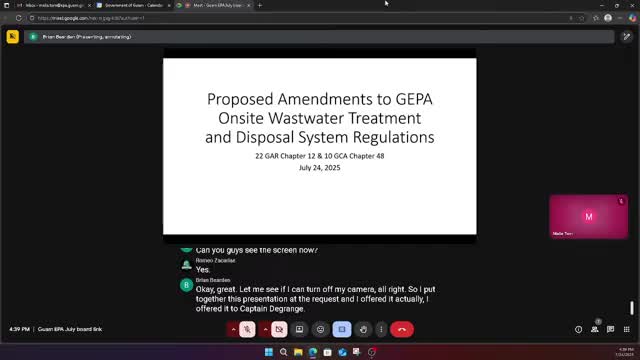Article not found
This article is no longer available. But don't worry—we've gathered other articles that discuss the same topic.

Guam EPA reviews testimony on environmental trust fund, zoning and composting bills; board signals support with comments

Guam EPA presents new on‑site wastewater rules requiring NSF‑certified 'type 4' systems, operating permits

Guam EPA administrator reports staffing, inspections and Didido cleanup; agency considers committing EC grant funds to tipping fees

